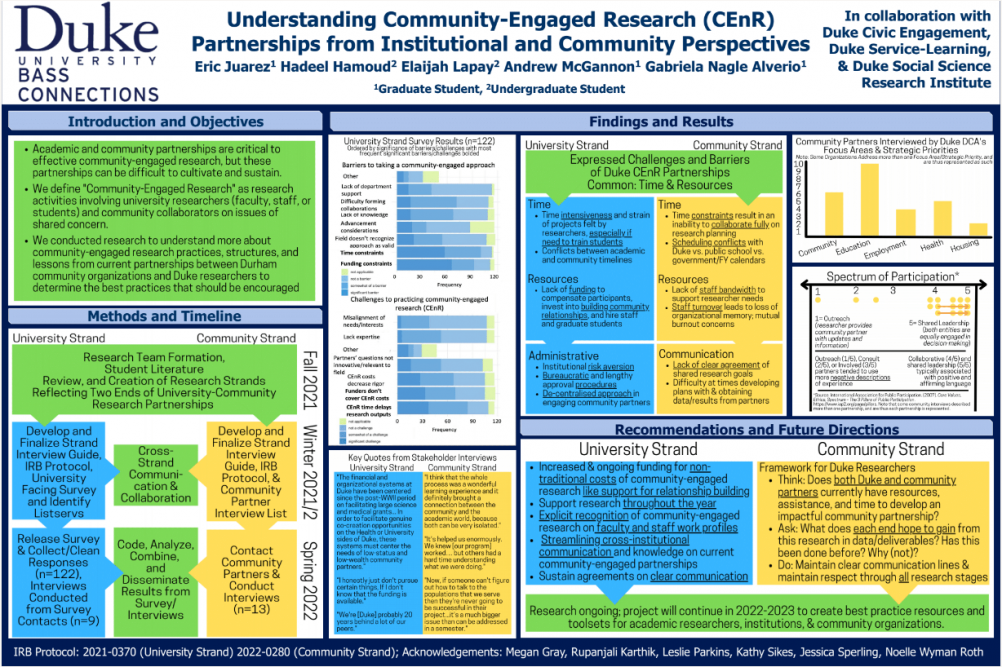Overcoming Barriers to Meaningful Community-University Research Partnerships
Project Team
Collaborative research partnerships between institutions of higher education and local communities offer a valuable form of scholarship and a transformative approach to teaching and learning. Such partnerships can improve research rigor and relevance, provide students with enhanced problem-solving skills and educational satisfaction, add valuable problem-solving capacity to community organizations and direct research toward critical community-identified needs. Yet, various institutional factors can inhibit ethical and effective collaboration, exacerbating power imbalance and inequity.
This team examined community-engaged research practices between Durham community organizations and Duke researchers by conducting surveys and interviews tailored to each group. Their research revealed that, although many partnerships are perceived as having been valuable, both the community partners and the Duke researchers encountered barriers and challenges in developing research collaborations. Based on these findings, the team made recommendations and suggestions for future directions for improving community-engaged research and strengthening community partnerships.
Understanding Community-Engaged Research (CEnR) Partnerships from Institutional and Community Perspectives
Poster by Andrew McGannon, Elaijah Lapay, Eric Juarez, Gabriela Nagle Alverio, Hadeel Hamoud, Megan Gray, Rupanjali Karthik, Leslie Parkins, Kathy Sikes, Jessica Sperling and Noelle Wyman Roth

